Obama ties LBJ’s civil rights legacy to LGBT Americans
By Justin Snow on April 10, 2014 @JustinCSnow
President Barack Obama embraced Lyndon B. Johnson’s civil rights legacy Thursday in a speech that credited the former president with helping to open the doors to equality for countless Americans, including those who are LGBT.
“Because of the Civil Rights movement, because of the laws President Johnson signed, new doors of opportunity and education swung open for everybody — not all at once, but they swung open,” Obama said. “Not just blacks and whites, but also women and Latinos; and Asians and Native Americans; and gay Americans and Americans with a disability. They swung open for you, and they swung open for me. And that’s why I’m standing here today — because of those efforts, because of that legacy.”
Obama’s speech at the Civil Rights Summit at Johnson’s presidential library in Austin marking the 50th anniversary of the signing of the Civil Rights Act was not the first time the nation’s first African-American president has tied the Civil Rights movement to the LGBT-rights movement.
“We, the people, declare today that the most evident of truths – that all of us are created equal – is the star that guides us still; just as it guided our forebears through Seneca Falls, and Selma, and Stonewall,” Obama said during his second inaugural address, repeating a phrase he used during a Barnard College commencement speech in May 2012.
When Obama marked the 50th anniversary of the March on Washington last August, he said that those who came to Washington in 1963 pushed the nation forward. “Because they marched, America became more free and more fair — not just for African Americans, but for women and Latinos, Asians and Native Americans; for Catholics, Jews, and Muslims; for gays, for Americans with a disability,” Obama said. “America changed for you and for me.”
Obama’s LGBT-rights legacy is certainly not lost on the president. And arguably nor is the work left to be done.
“I think it’s fair to say that there has been enormous progress made under this administration when it comes to LGBT rights — historic progress. And that’s something the President wants to continue and wants to see continue,” White House press secretary Jay Carney told reporters aboard Air Force One.
The first sitting American president to openly endorse same-sex marriage, he has all but ensured that a Democrat will never again be able to run for the White House without supporting marriage equality. Under his direction, Attorney General Eric Holder, the nation’s first African-American attorney general, and the Justice Department ceased defending the Defense of Marriage Act (DOMA) in federal court. When the Supreme Court heard arguments in same-sex marriage cases for the first time in March 2013, Obama’s solicitor general, Donald Verrilli, urged the Supreme Court justices to strike down DOMA as well as California’s same-sex marriage ban. The repeal of “Don’t Ask, Don’t Tell” bears his signature. And early on Obama endorsed the Employment Non-Discrimination Act (ENDA).
Where Obama has come up short — in refusing to sign an executive order protecting LGBT federal contractors from workplace discrimination — he has faced heightened criticism, in large part because of how out of character it is from his broader civil rights record. That proposed executive order, which Obama once supported as a candidate for president in 2008, is based on Executive Order 11246, which has been expanded by a number of presidents to prohibit federal contractors from discrimination on the basis of race, color, religion, sex and national origin.
In light of the setting for Obama’s speech today, it is worth noting that executive order was first signed by President Johnson.
“[W]e are here today because we know we cannot be complacent,” Obama said Thursday. “For history travels not only forwards; history can travel backwards, history can travel sideways. And securing the gains this country has made requires the vigilance of its citizens. Our rights, our freedoms — they are not given. They must be won. They must be nurtured through struggle and discipline, and persistence and faith.”
Ultimately, Obama said, the nation moves forward. “However slow, however incomplete, however harshly challenged at each point on our journey, however flawed our leaders, however many times we have to take a quarter of a loaf or half a loaf — the story of America is a story of progress.”
[Photo: Barack Obama in the Oval Office replica at the LBJ library. Credit: Official White House Photo by Pete Souza.]
More from Metro Weekly:
Supreme Court Signals It May Uphold Transgender Sports Bans
The court’s conservative majority appeared skeptical of arguments that transgender athlete bans are discriminatory or unconstitutional.
By John Riley on January 13, 2026 @JRileyMW
The U.S. Supreme Court on Tuesday signaled it may uphold state bans barring transgender girls and women from competing on female-designated sports teams during oral arguments in two closely watched cases.
Lower courts previously ruled in favor of the two transgender athletes, who challenged bans in Idaho and West Virginia -- two of the 27 states that have enacted laws banning people assigned male at birth from competing on female sports teams.
Proponents of restricting transgender participation argue that people who are assigned male at birth and undergo male puberty prior to transitioning retain physiological advantages that give them an unfair edge over cisgender female competitors.
Gay Alexandria Councilman Wins Delegate Primary
R. Kirk McPike secured 60.5% of the vote in a four-way Democratic firehouse primary and will advance to a February special election.
By John Riley on January 22, 2026 @JRileyMW
Alexandria City Councilman R. Kirk McPike won Tuesday’s Democratic firehouse primary for a seat in the Virginia House of Delegates.
The openly gay McPike, who works as chief of staff for U.S. Rep. Mark Takano (D-Calif.), secured 60.5% of the vote in the four-way race among Democrats in the 5th House District.
Eileen Cassidy Rivera, a former Alexandria City School Board member, placed second, finishing ahead of criminal defense attorney Chris Leibig and Gregory Darrall, an openly gay teacher and labor leader.
Anti-LGBTQ Incidents Spiked Nationwide in 2025
GLAAD tracked more than 1,000 incidents across nearly every state, with sharp increases during Pride Month.
By John Riley on January 27, 2026 @JRileyMW
GLAAD has released new data showing that 1,042 anti-LGBTQ incidents were reported across 47 states and the District of Columbia in 2025 -- a 5% increase over the previous year, according to the organization’s ALERT Desk Anti-LGBTQ Extremism Reporting Tracker.
Anti-LGBTQ incidents were defined as "an act of harassment, threat(s), vandalism, and/or assault against an individual, group, and/or organization," with explicit evidence of anti-LGBTQ bias as a motivating factor.
The incidents included 128 acts of hateful vandalism, 76 violent assaults, 22 threats of mass violence, and 15 arson attempts.
Support Metro Weekly’s Journalism
These are challenging times for news organizations. And yet it’s crucial we stay active and provide vital resources and information to both our local readers and the world. So won’t you please take a moment and consider supporting Metro Weekly with a membership? For as little as $5 a month, you can help ensure Metro Weekly magazine and MetroWeekly.com remain free, viable resources as we provide the best, most diverse, culturally-resonant LGBTQ coverage in both the D.C. region and around the world. Memberships come with exclusive perks and discounts, your own personal digital delivery of each week’s magazine (and an archive), access to our Member's Lounge when it launches this fall, and exclusive members-only items like Metro Weekly Membership Mugs and Tote Bags! Check out all our membership levels here and please join us today!
The Magazine
-
Most Popular
 Tucson Pride Cancels 2026 Festival, Dissolves Board
Tucson Pride Cancels 2026 Festival, Dissolves Board  LGBTQ Lawmakers Condemn Killing of Alex Pretti by ICE
LGBTQ Lawmakers Condemn Killing of Alex Pretti by ICE  LGBTQ TikTok Influencer Beaten to Death in Thai Forest
LGBTQ TikTok Influencer Beaten to Death in Thai Forest  Tyra Announces Lawsuit Against RuPaul, Visage, and WOW
Tyra Announces Lawsuit Against RuPaul, Visage, and WOW  Win Tickets to Bianca Del Rio
Win Tickets to Bianca Del Rio  Anti-LGBTQ Incidents Spiked Nationwide in 2025
Anti-LGBTQ Incidents Spiked Nationwide in 2025  Chicago-Area Teen Used Sniffies to Lure and Rob Uber Driver
Chicago-Area Teen Used Sniffies to Lure and Rob Uber Driver  In A Private Life, Jodie Foster Shines as the Mystery Fades
In A Private Life, Jodie Foster Shines as the Mystery Fades  Judge Rejects DOJ Effort to Charge Don Lemon
Judge Rejects DOJ Effort to Charge Don Lemon  Transphobes Rage Over Dylan Mulvaney’s Casting in Six
Transphobes Rage Over Dylan Mulvaney’s Casting in Six
 In A Private Life, Jodie Foster Shines as the Mystery Fades
In A Private Life, Jodie Foster Shines as the Mystery Fades  Tyra Announces Lawsuit Against RuPaul, Visage, and WOW
Tyra Announces Lawsuit Against RuPaul, Visage, and WOW  Tucson Pride Cancels 2026 Festival, Dissolves Board
Tucson Pride Cancels 2026 Festival, Dissolves Board  LGBTQ TikTok Influencer Beaten to Death in Thai Forest
LGBTQ TikTok Influencer Beaten to Death in Thai Forest  Anti-LGBTQ Incidents Spiked Nationwide in 2025
Anti-LGBTQ Incidents Spiked Nationwide in 2025  Win Tickets to Bianca Del Rio
Win Tickets to Bianca Del Rio  Judge Rejects DOJ Effort to Charge Don Lemon
Judge Rejects DOJ Effort to Charge Don Lemon  LGBTQ Lawmakers Condemn Killing of Alex Pretti by ICE
LGBTQ Lawmakers Condemn Killing of Alex Pretti by ICE  Mercy Promises Big Ideas -- and Delivers Nothing
Mercy Promises Big Ideas -- and Delivers Nothing  Transphobes Rage Over Dylan Mulvaney’s Casting in Six
Transphobes Rage Over Dylan Mulvaney’s Casting in Six
Scene
Metro Weekly
Washington's LGBTQ Magazine
P.O. Box 11559
Washington, DC 20008 (202) 527-9624
About Us pageFollow Us:
· Facebook
· Twitter
· Flipboard
· YouTube
· Instagram
· RSS News | RSS SceneArchives
Copyright ©2025 Jansi LLC.










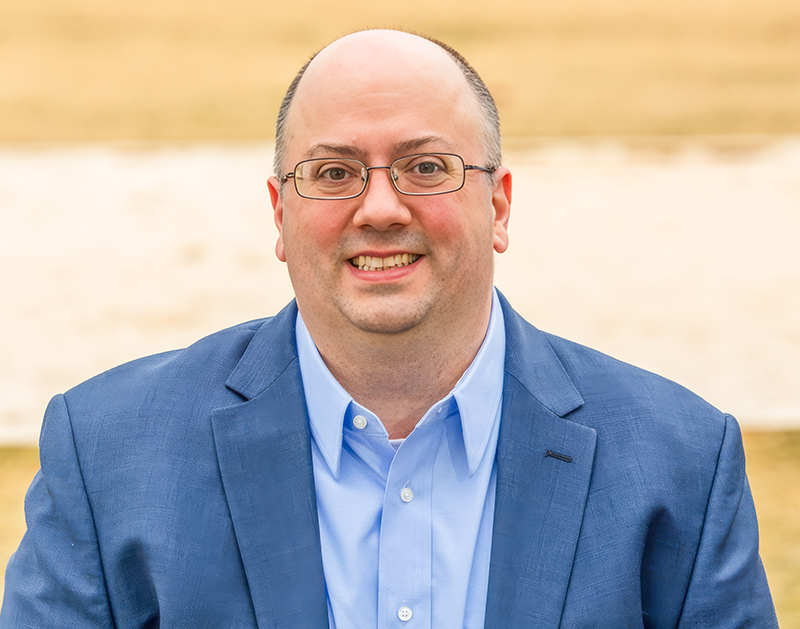
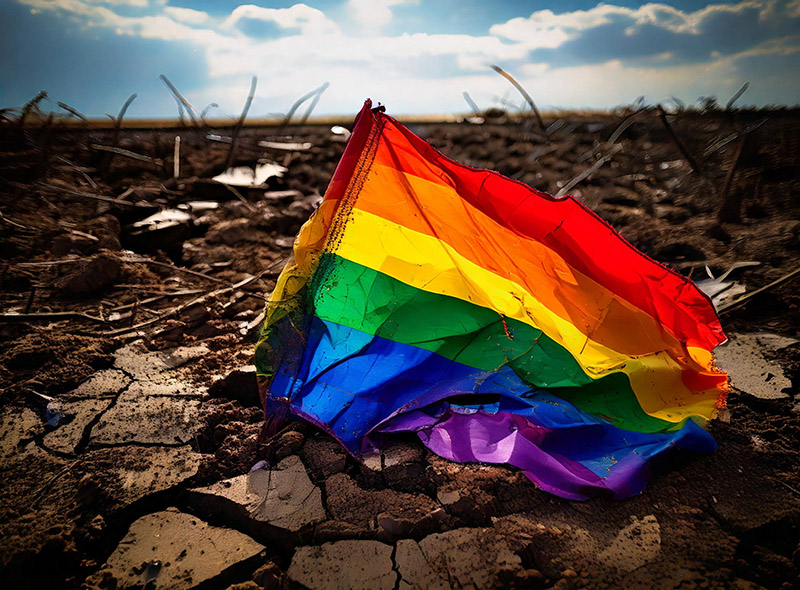
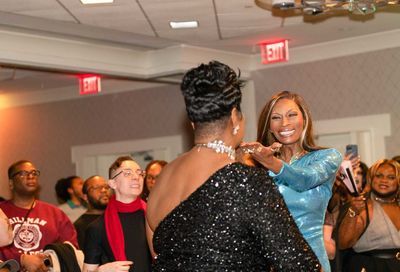
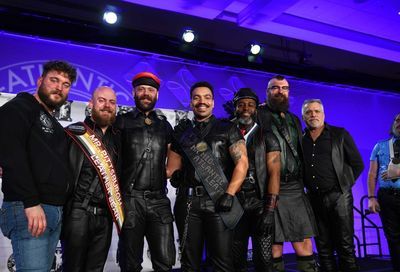
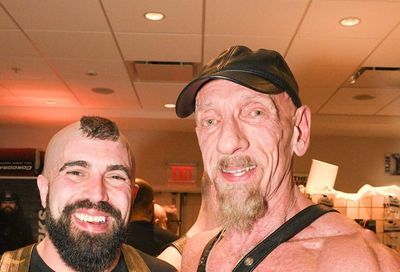
You must be logged in to post a comment.